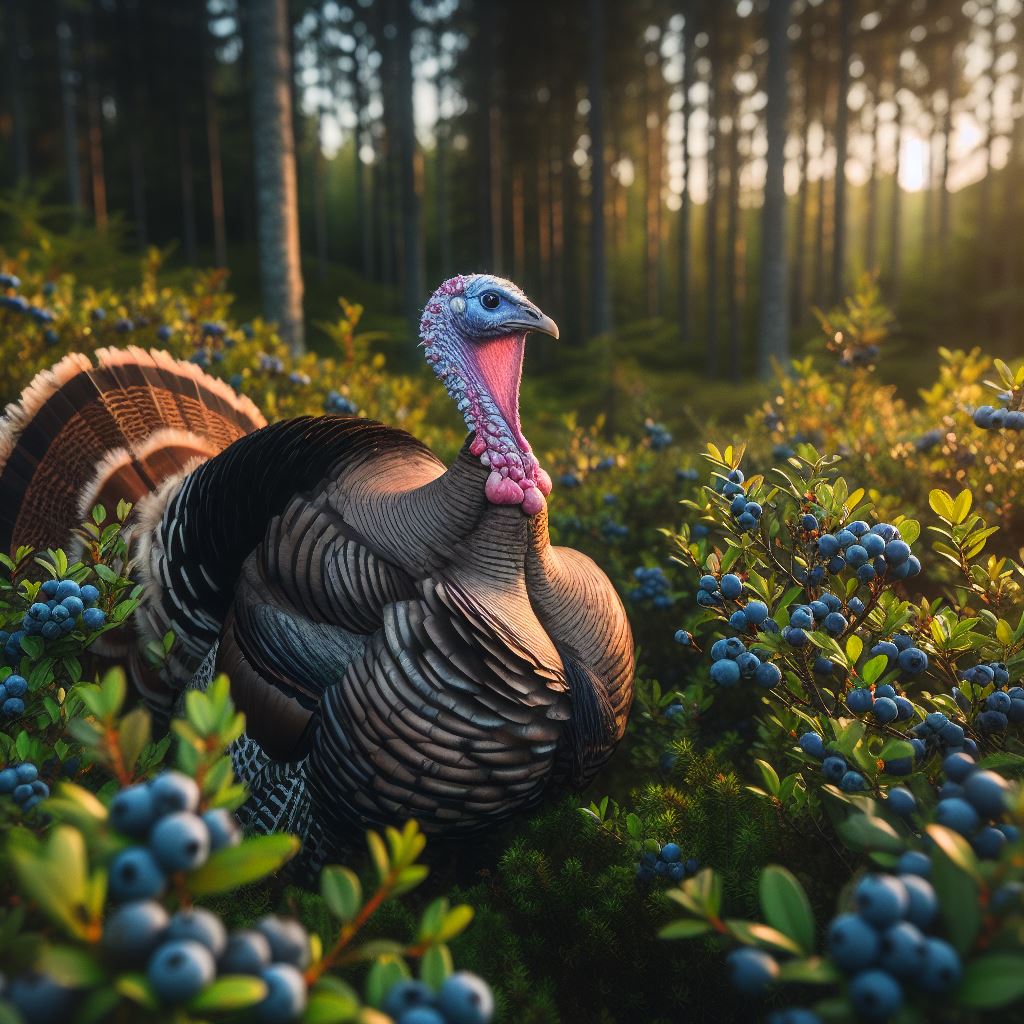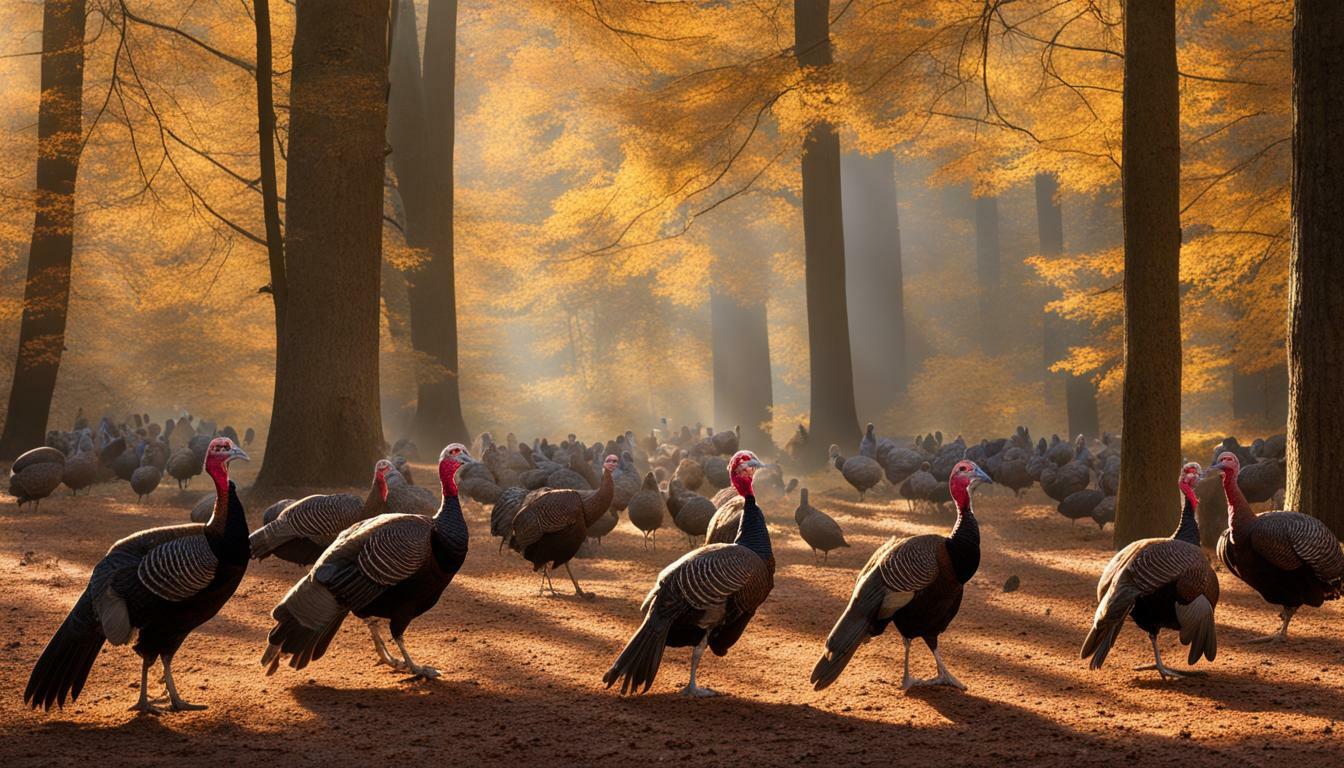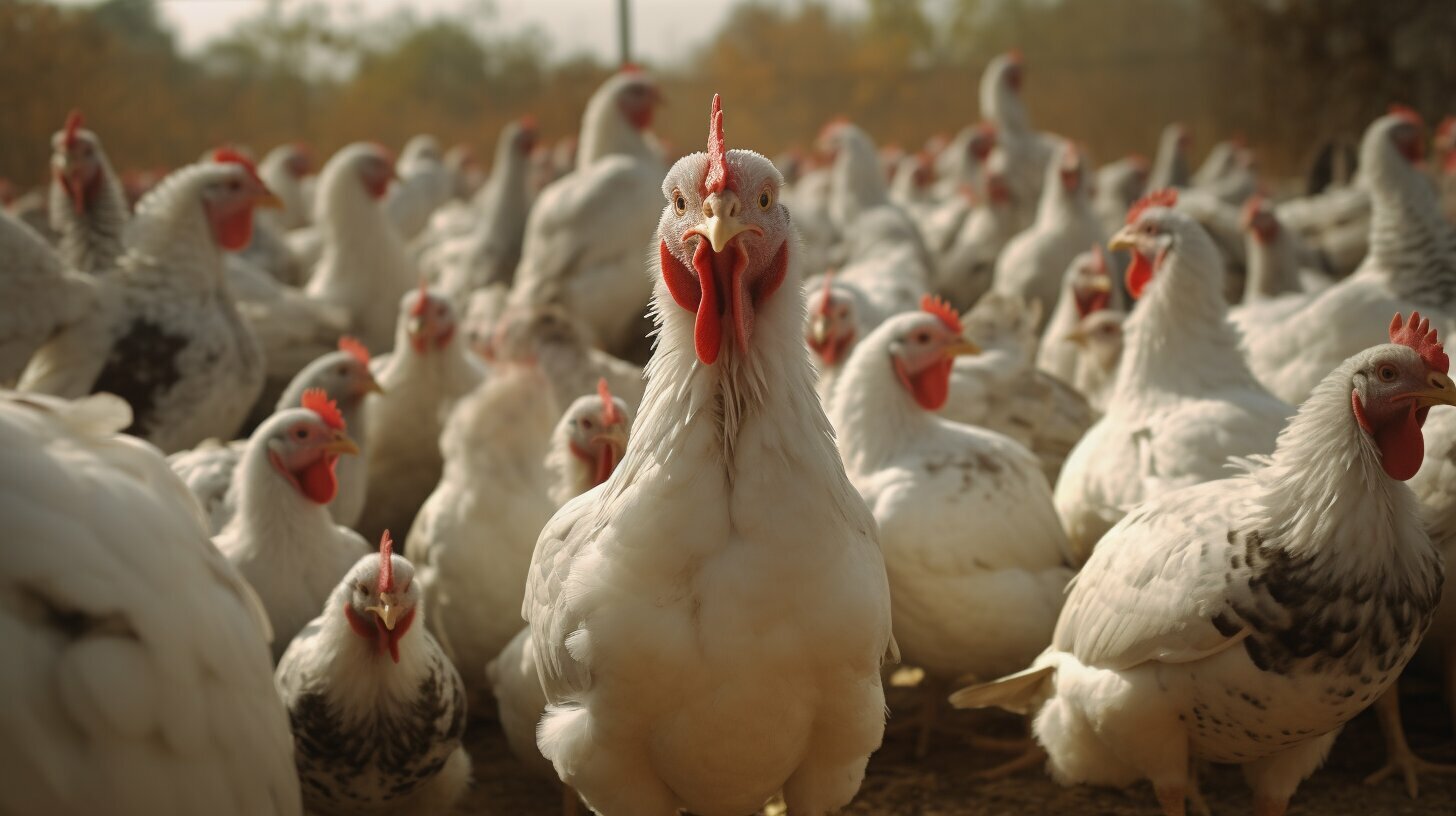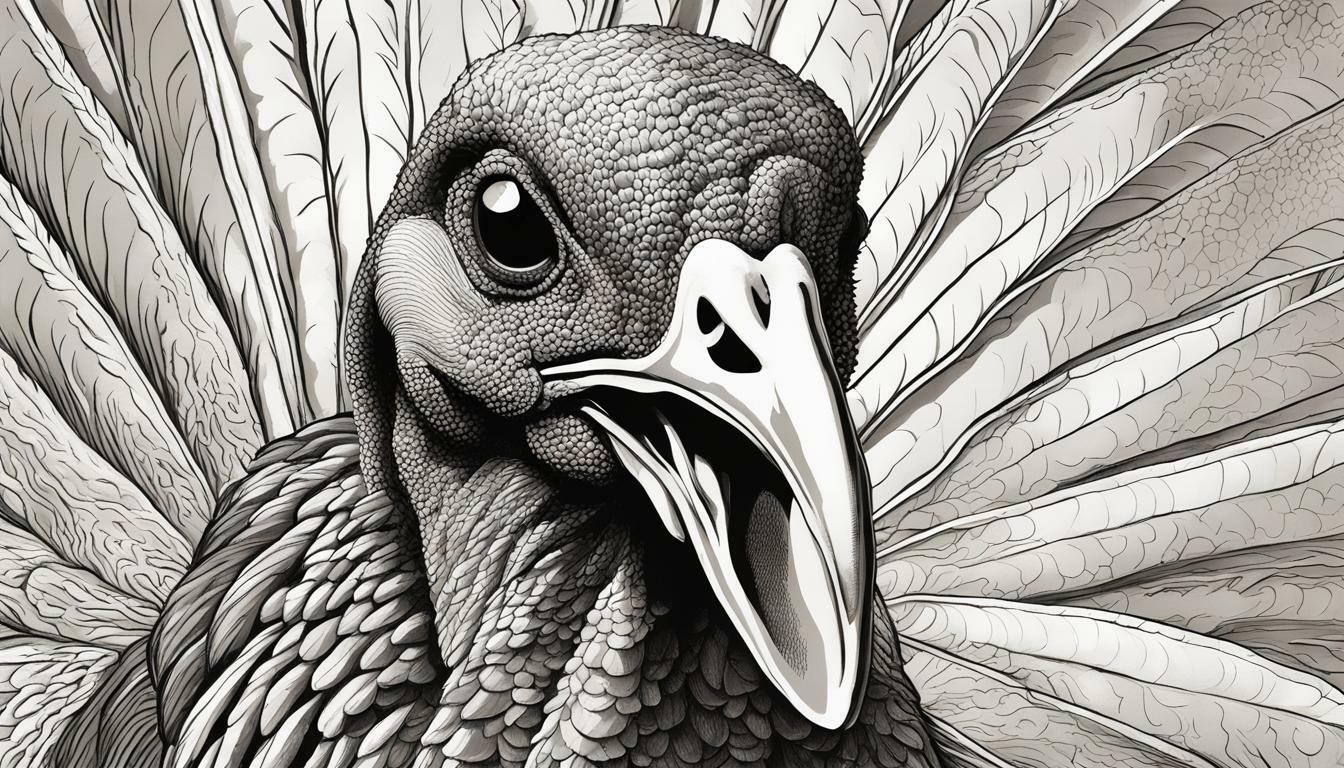Can Turkeys Eat Pumpkins? Your Guide to Turkey Diet

Table of content:
Turkeys are a popular type of poultry raised on farms and in backyards across North America. As fall approaches, pumpkins become readily available. This leads many turkey owners to wonder – can turkeys eat pumpkins?
The short answer is yes, turkeys can safely eat pumpkins in moderation as an occasional treat. Pumpkins contain nutrients that provide health benefits for turkeys. However, pumpkins should not make up a significant portion of a turkey’s diet.
Benefits of Pumpkins for Turkeys
Pumpkins can offer some nutritional benefits for turkeys:
- Vitamin A – Pumpkins are high in vitamin A from beta-carotene. This vitamin supports eye health and immune function in turkeys.
- Vitamin C – Pumpkins contain vitamin C, an antioxidant that helps turkeys absorb iron better. It also supports immune health.
- Potassium – Pumpkins have high levels of potassium to support nerve function and muscle health in turkeys.
- Fiber – The fiber in pumpkin promotes healthy digestion and nutrient absorption.
Overall, the vitamins, minerals, and fiber in pumpkin make it a nutritious fall treat in small amounts. The nutrients support the health and development of turkeys.
Risks of Feeding Too Much Pumpkin
While small amounts of pumpkin are beneficial, overdoing it can cause problems. Too much pumpkin can lead to:
- Nutritional imbalances – Pumpkin lacks sufficient protein, fat, and other nutrients turkeys need. Relying too heavily on pumpkins could lead to deficiencies.
- Digestive upset – The high fiber content could cause loose droppings or diarrhea if turkeys eat too much.
- Unpalatable – Some turkeys may not like the taste of pumpkin and refuse to eat it. Others may get tired of it if offered daily.
To avoid issues, pumpkins should be fed in moderation a few times a week at most. Follow recommended serving sizes when offering pumpkins.
Feeding Pumpkin to Turkeys by Age
The appropriate amount of pumpkin to feed turkeys depends largely on the bird’s age:
Baby Turkeys
Turkey poults should not eat pumpkin until at least 4 weeks old. Their young digestive systems cannot handle the high fiber content before then. Wait until poults are eating crumble feed well and have fully feathered wings.
When introducing pumpkin, start with just a few diced pieces once or twice a week. Slowly increase portion sizes as poults grow. This allows their digestive system to adjust.
Juvenile Turkeys
As turkeys grow from poults into juveniles, they can handle more pumpkins. From 2-4 months old, turkeys can eat pumpkin 2-3 times per week. Serving sizes can increase to 1-2 cups.
Make sure juveniles are eating a balanced diet. Pumpkin should supplement their regular feed, not replace it. Monitor droppings for diarrhea.
Mature Turkeys
Once turkeys reach maturity after 5-6 months, their digestive system can handle more frequent and larger portions of pumpkin.
Mature turkeys can eat pumpkin treats 3-4 times weekly. Serving sizes can be increased to 2-3 cups for large birds. Always supervise feeding and adjust portions if turkeys have adverse reactions.
Best Practices for Feeding Pumpkins
Follow these tips to safely incorporate pumpkin into your turkeys’ diets:
- Gradually introduce pumpkin starting with small amounts
- Adjust serving sizes based on age and individual tolerance
- Mix diced pumpkin into their regular feed
- Offer once or twice a week, not daily
- Make sure turkeys always have access to insoluble fiber sources
- Chop large sugar pumpkins into turkey-sized pieces
- Clean and sanitize all pumpkins thoroughly before feeding
- Remove rinds, stems, and seeds, which could choke turkeys
Watch turkey droppings to ensure the high fiber content doesn’t cause digestive upset. Discontinue feeding pumpkin if any turkeys have adverse reactions.
Healthy Pumpkin Prep for Turkeys
To maximize nutrition and minimize risks, properly prepare pumpkins before feeding:
- Select sugar, cheese, kabocha, or pie pumpkins – These have the best flavor and nutrient content. Avoid carving jack-o-lanterns.
- Wash and sanitize – Thoroughly wash pumpkins in water with a small amount of bleach or vinegar to kill bacteria.
- Cut – Slice large pumpkins into pieces sized appropriately for your turkeys to easily eat.
- Seed – Always scoop out and discard all pulp, seeds, and strings, as they could pose a choking hazard.
- Peel – The rind is difficult to digest so peel off the outer skin if feeding raw pumpkin.
- Cook – For easier digestion, steam, boil, or bake pumpkin until soft. Let cool before feeding.
By preparing pumpkin properly, your turkeys will reap the nutritional benefits without digestive upset.
Types of Pumpkins Safe for Turkeys
Not all pumpkins are created equal. Some varieties are better suited for turkeys than others:
- Sugar pumpkins – Small, sweet, and containing more flesh. Excellent for turkeys.
- Cheese pumpkins – Similar to sugar pumpkins with a flat shape. Also very suitable for poultry.
- Pie pumpkins – Larger but have tender, edible flesh. Good for turkeys when cut into portions.
- Kabocha squash – Sweet Japanese variety of winter squash in the pumpkin family that makes a good treat.
- Canned pumpkin – Ensure it has no added sugar, spices, or flavors. Check it is 100% pumpkin.
- Avoid carving Jack-o-Lanterns as they have less flesh and thicker rinds. Also discard Halloween decorations.
Selecting an appropriate pumpkin type will ensure turkeys enjoy eating this fall treat while benefiting nutritionally.
Healthy Alternatives to Pumpkins
While pumpkins are a tasty fall option for turkeys, they are not necessary for a balanced diet. There are many other fruits and vegetables that can provide variety:
- Other winter squash like butternut or acorn.
- Bright veggies like carrots, sweet potatoes, peppers, or cabbage.
- Unsweetened cooked oatmeal, barley, rice, or pasta.
- Fruits like chopped apples, berries, melons, and citrus.
- Leafy greens like kale, spinach, lettuce, and sprouts.
- Unsalted nuts and seeds like sunflower or squash seeds.
Rotate different healthy produce to provide nutritional variety. Avoid overdoing any single food item. A diverse diet is key to good turkey health.
FAQs About Feeding Pumpkins to Turkeys
Many turkey owners have additional questions about incorporating pumpkins safely. Here are answers to some of the most common queries.
Can turkeys eat pumpkin seeds and guts?
No. Never feed turkeys the pulp, seeds, or stringy fibrous parts of a pumpkin. These could pose a serious choking hazard or intestinal blockage. Always scoop out and discard the interior before feeding pumpkin flesh.
What about ornamental pumpkins – are they safe?
No. Avoid pumpkins that are painted, glittered, or decorated as they likely contain toxic substances. Do not feed carving Jack-o-Lanterns to poultry either. Only offer plain, undecorated sugar/pie/cheese pumpkins.
Can turkeys eat pumpkin leaves and vines?
Pumpkin leaves, stems, and vines can contain toxins and should not be fed to turkeys. Only offer the peeled, deseeded flesh of the pumpkin itself.
How long is fresh pumpkin safe to feed turkeys?
Fresh pumpkins should be fed within 1-2 days for best quality and safety. Leftover cooked pumpkins can be refrigerated for 3-5 days. Frozen cooked pumpkin keeps for 4-6 months.
Is canned pumpkin okay for turkeys?
Plain canned 100% pumpkin with no added sugar, spices, or flavorings is safe for turkeys in moderation. Ensure the ingredients are just pumpkin. The canning process softens the pumpkin making it easier to digest.
Can baby poults eat pumpkin?
No. Baby turkeys under 4 weeks old should not eat pumpkins. Their young digestive systems cannot handle the high fiber content. Wait until poults are fully feathered and eating crumble feed well before offering small diced pieces of pumpkin.
Conclusion
Pumpkins can be a tasty and nutritious occasional treat for turkeys of all ages when fed properly. Full of beneficial vitamins, minerals, and fiber, small portions of pumpkin can add variety to a balanced diet. Always monitor turkeys closely when introducing new foods. Stop feeding pumpkin immediately if any adverse reactions occur. With proper precautions, pumpkin can be a fun way to add nutrition and treat your turkeys this autumn.
Welcome. I’m Adreena Shanum, the proud owner of this website, and I am incredibly passionate about animals, especially poultry. I founded adreenapets.com as a labor of love, stemming from my desire to share my knowledge and experiences with poultry enthusiasts worldwide.




